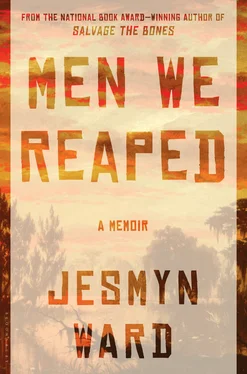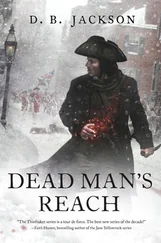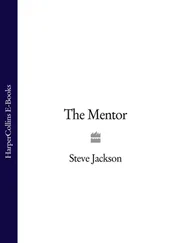“This is my sister Mimi,” Nerissa said. She nodded at me, and I smiled over my bottle.
“Hey.”
I’d let the beer turn flat, warm, but I’d still drink it. I am happy , I thought. And then: This is what it means to be spared .
Demond had grown up in DeLisle. Not only was he unusual because he was an only child, but he was also unusual among my generation because he had both parents, and both of his parents had solid working-class jobs. His mother spent years at the pharmaceutical bottling company where he would later work. Being an only child and having a two-parent family meant Demond was the kid in the neighborhood who had all the things the other kids wanted: a swimming pool, an adjustable basketball hoop. Even when we were children, Demond’s house was the house where all the kids wanted to be. While my brother and sisters and I were too young and lived too far away to enjoy his family’s largesse, the older boys in the neighborhood spent hours at Demond’s, swimming away afternoons, wrestling in the water until they smelled strongly of chlorine, their eyes and skin burning. Or sweating for hours in the Mississippi heat, hurling the ball toward Demond’s basketball hoop. When Demond graduated from high school, he joined the military. He enlisted in the army for four years, but at some point in his stint he decided that the military was not for him, so he returned home to DeLisle.
Demond was a hustler in the traditional definition of the word, in the way that many, younger and older in DeLisle, were made to be by necessity. He would do what he had to do to support himself and, later, his family. He learned trades as he went. Whatever the project called for, he did: once he worked as a carpenter even though he had few of those skills. For a longer amount of time he worked at a clothing factory; everyone from DeLisle called it the “T-shirt factory.” They didn’t only manufacture T-shirts there but also acid-washed jeans that were too big in the crotch and too tight in the legs. It was hot in the building, made hotter by fans circulating the dense air. His last job would be in the pharmaceutical factory his mother worked in. The factory was cavernous: long assembly lines snaked through the space, carrying bottles of Pepto-Bismol and capsules of Alka-Seltzer past the workers, who covered their hair with plastic caps and wore thick plastic glasses and face masks. Their jobs were tedious and repetitive, and consisted of bottling the product, screwing caps on, loading the bottles in boxes and onto pallets. This was one of the last good factory jobs on the coast, since the glass bottling company next door had closed years before. The economy of the Gulf Coast had changed drastically in the late eighties and early nineties; many factories had closed, and the seafood industry offered fewer opportunities for employment. As the economy ailed, the Mississippi legislature passed gaming laws that introduced casinos on barges. In general, there was a move from manufacturing and making things to service and tourism. And Black people in the region, who historically did not have the resources to attend college and so did not qualify for the administrative positions, were limited to jobs as cocktail waitresses, valet attendants, and food preparers. Demond was lucky to have his job. At the pharmaceutical plant in Gulfport, he worked different shifts: sometimes overnight, sometimes during the morning and into the afternoon, and sometimes during the afternoon and into the early evening. Most of the time when I saw him he was in throwaway tees, work pants, boots, with a bandana tied around his dreads to hold them away from his face, to protect them from whatever machines he worked over in that factory. He wore his work jumpsuits and his boots like a badge of honor, and when I saw him in them, dusted with whatever compound he packaged in that factory, he looked so much like my brother when he’d flitted from factory job to factory job that it was hard to keep my gaze on him.
Demond lived in a seafoam-green house. It had belonged to his grandmother; her husband had probably built it for her, as was the custom in DeLisle in those days. When his girlfriend gave birth to their child when he was in his late twenties, his mother gave him the house for them to live in. It was like most of the older houses in DeLisle: perched up on cinder blocks, two or three, in case of flood; low ceilings, wood paneling, small corner kitchen. Demond’s house was set at the rear of a long, roomy piece of corner property. His yard was mostly grass with a few trees clustered closer near the front of the house: an old spreading oak, pecan, a crape myrtle gone to seed. The house was fronted by a wood-framed, screened-in porch. The living room was always dark, lit only by the neon play of the television across the walls, our faces. The dining room was usually empty except for domino and spades games on the older wooden table, the kitchen brown as the rest of the house. The bathroom was shoved behind the kitchen in a weird, diagonally placed nook off his child’s bedroom. The rest of the house, which included two more bedrooms, was designed like a shotgun house, each room opening onto another.
I never went through the door in his child’s bedroom wall into the bedroom he shared with his girlfriend, through that door to the extra bedroom in the back where sometimes his girlfriend’s twin slept. I wondered about those rooms often, wondered if they were as dark as the rooms in the front, if they seemed as sealed, as insular, and I imagined them stretching off into a great distance, room after room, each one more cavelike than its predecessor, each holding what would later become treasure: a picture of Demond grinning and holding his child, his Enyce fits, his Timberland boots, still smelling faintly of the sweat of his feet. I never imagined people in those rooms since all the living seemed to be done in the front.
We were young people living in houses seemingly more populated by ghosts than by the living, with the old dead and the new. I wondered about Demond’s grandmother and her kids, and wondered what their lives in Demond’s house had been like. Had they lived with the dead as we did? Had they quaffed shine the way we did beer and weed and pills, and then stare at each other in the dim light, glassy-eyed, hoping for a sea change? Even though Demond’s parents had remained married and both had good jobs, his family wasn’t so different from my family, his reality the same, death stalking us all. If Demond’s family history wasn’t so different from my own, did that mean we were living the same story over and over again, down through the generations? That the young and Black had always been dying, until all that was left were children and the few old, as in war?
That same summer, we decided to have a crawfish boil at Nerissa’s apartment. Rob borrowed a gas burner and a huge silver pot from a friend in the neighborhood. He set it at the edge of Nerissa’s small concrete back patio, pulled out a plastic table, set six chairs around it. It was a bright, warm day; the grass was tough with water because it was summer. It had been raining at least every other day for the past month. Rob set out with two empty coolers and went to a seafood shop that specialized in crawfish during the season, and returned with them full and crawling with mud-green crawfish. He and Nerissa chopped seasonings, dumped them in the heavy silver pot so large an infant could fit inside, and began boiling the sides. Charine and her boyfriend, C. J., cuddled on the sofa, demanded that the rest of us watch the Bruce Lee biopic Dragon over and over again. People arrived one by one, in pairs, in carfuls, Rog and Demond among them. Once there, Demond took a seat at the table where a dominoes game was in mid-slap. A cooler of beer appeared, a few bottles of Crown, some fruity malt beverages for the girls. We spread newspaper over the kitchen table inside the house, dumped the boiled crawfish, now blood red, on the table. We peeled, sucked, and ate. My lips began to burn and I noticed that everyone who was eating crawfish was sniffing, eyes watery, lips red and puffy as pickled pig’s lips in a jar. Demond sat at the table with Nerissa and me and Charine, passed us drinks, asked me questions about what I did.
Читать дальше












